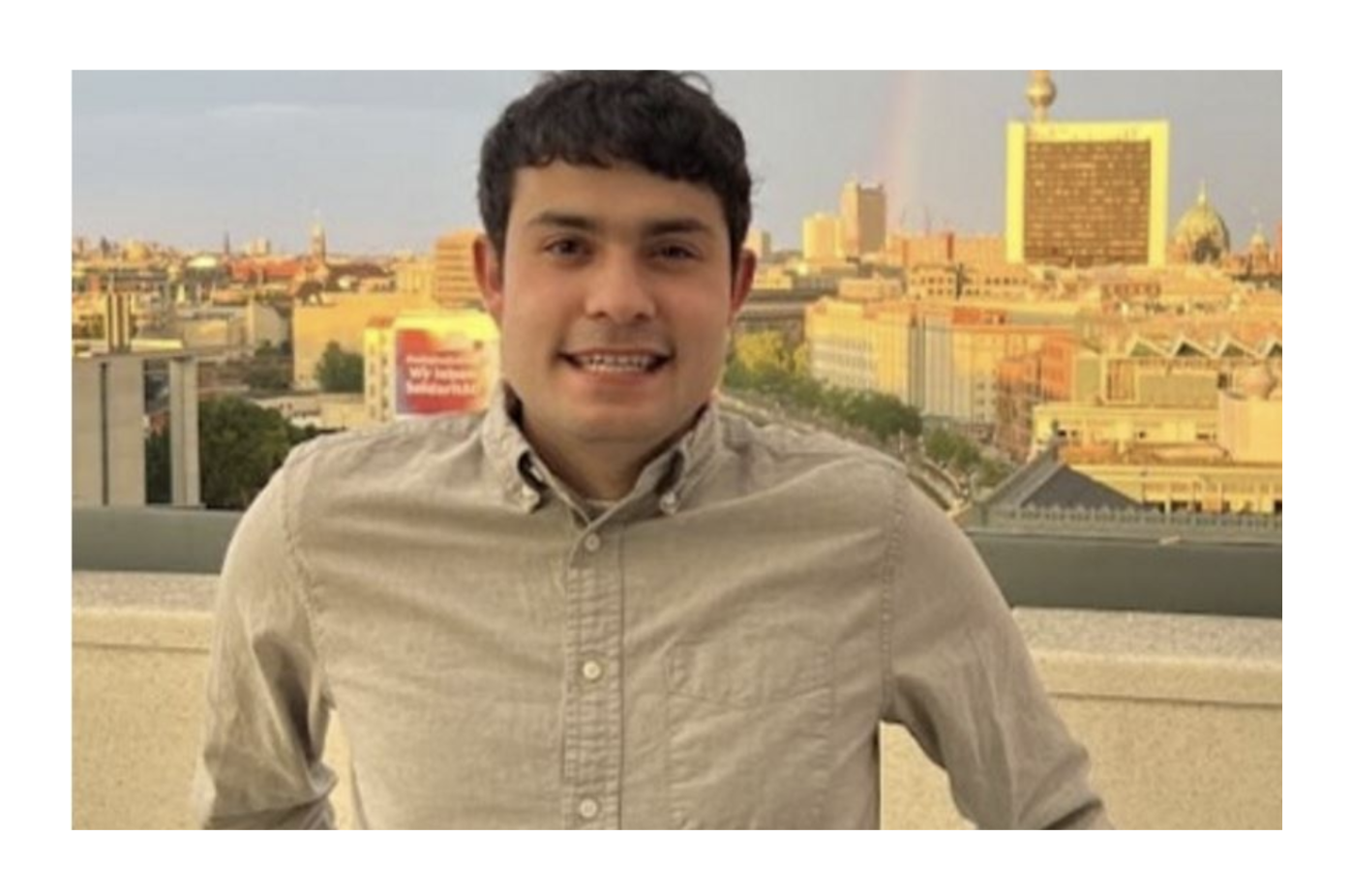
Caleb Crain ('25), a History major, researched how soccer influenced the political and cultural landscape in Germany from 1933 to 1954 under the mentorship of Dr. Anne Berg (Department of History) and through the support of the Gelfman International Summer Fund.
This summer, I traveled to Germany to conduct research for my history thesis on the role of soccer in political and cultural developments in Germany from 1933 to 1954. I began learning German as a freshman at Penn. Once I declared history as my major, I knew I wanted to write a thesis about German history. After I watched a documentary about the history of soccer in Berlin, I worked with my advisor, Professor Anne Berg, to decide on this topic. This topic is important to me because it explores a vastly complex time in German history through a unique angle, and I made connections between themes that I wouldn't otherwise have been able to do. During my research, I visited multiple archives and museums, and reviewed materials — books, government documents, and more — that were important to my topic.
One challenge about conducting research in history is that it — like many disciplines in the humanities — can be isolating at times. I wasn't working in a laboratory, and sometimes I was the only person in the archive that I was visiting. But I was able to find connections by immersing myself in the materials I was reading and exploring the stories of important and interesting people of the past. I also found the other people using the archives and the staff who worked there to be very helpful and interested in my work. I learned that connections can come in unusual places, showing that the stereotype that historical research is solitary isn't always true.
Over the course of doing this research, I developed several new skills. I learned how to extract what was useful from large amounts of information, and synthesize that into writing that can be easily digested. This was also my first time operating in a German language environment, and I enjoyed being able to use a language that I'd been learning for three years in everyday life. Even in just two weeks, I feel like my German improved substantially. And lastly, this research taught me the importance of looking off the beaten path for information. Some of the most useful material came from a municipal archive in a small city in Northwest Germany, far from a sprawling national library or modern museum.
Ultimately, my research experience over the summer was integral in shaping the direction of my thesis as the materials I uncovered were incredibly helpful in developing and supporting my arguments. Beyond this project, research allowed me to hone skills that I've learned in my classes and has inspired me to continue pursuing paths that involved research, whether that is in a career or further education.
Interested in reading more first-hand accounts about undergraduate research? Check out the other experiences featured on our Student News Page and Social Media!